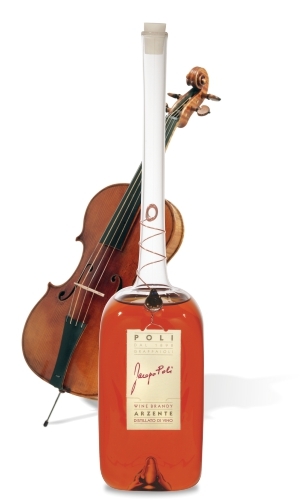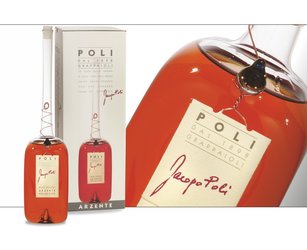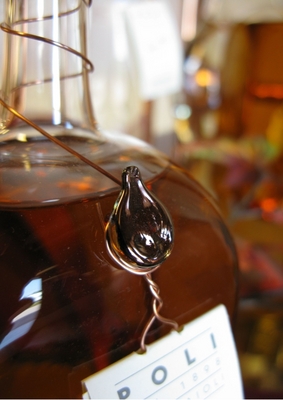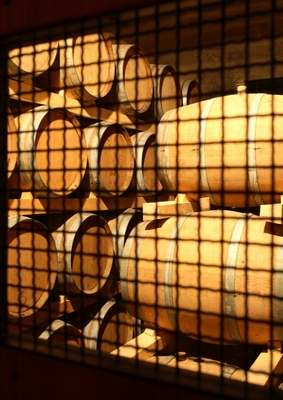From the material ... to the spirit
Arzente is a wine distillate with a rather unique story behind its name.
Once upon a time Italian wine distillates were called ‘Cognac’.
That caused endless squabbles with France until on 29 May 1948, at the end of the Second World War, an agreement was signed whereby Italy renounced the Cognac denomination, reserved only for wine distillates from the Charente area, in France.
It was therefore necessary to find another name. A few years before the poet Gabriele Dannunzio had suggested to Italianize the term Cognac, replacing it with ‘Acquarzente’, then shortened to ‘Arzente’.
An ancient name, going back to the time of Cosimo de’ Medici, and then Catherine, Queen of France, who had her Arzente distilled by experts and promoted it as a “reinvigorating, medicinal drink for her armigers”.
In Law No. 1559, dated 7 December 1951, ‘Arzente’ appeared among the appellations allowed for wine distillates.
Major producers of wine distillates preferred however the word Brandy (from the Dutch word brandewijn, burnt wine), easier to pronounce and more suited to a product meant for mass market.
We preferred the old name ‘Arzente’ for our wine distillate in honour of the history associated with it, for the cultural suggestions it evokes and for its sunny charm.
Arzente Poli is obtained from the distillation of Trebbiano di Soave, a wine with a fine and delicate aroma and low alcohol content, poor in tannins and with high acidity: ideal for a wine to be distilled.
Arzente is distilled to a low alcohol content in order to safeguard its volatile compounds, responsible for the aromas and scents; to this end we use a steam alembic still on a discontinuous cycle (artisanal method) that allows to accurately remove heads and tails.
Arzente owes its aromatic complexity to a natural ten year ageing. For the first seven years we use Slavonia oak barrels and, for the following two years, 350 litre Limousin oak casks. Lastly, before bottling, a one year stay in 225 litre Allier oak carati.
Arzente is bottled in purezza, meaning it is not mixed with other different lots of brandy.
Each bottle bears on its label the millesimo, or year of distillation.
Jacopo Poli
Wine Brandy
Jacopo Poli Arzente
The absolute harmony of a Vivaldi cello concert.
Wine Brandy, aged 10 years in oak barrels, traditional bain-marie distilled.
Its aroma recalls a patisserie full of cream pastries, eggnog and tiramisu cake.
Find out more Watch
Watchthe video
Grappas

Distillates
Features
Raw material: Trebbiano di Soave wine
Production method: artisanal distillation, with a discontinuous traditional bain-marie still; aged 10 years in oak barrels
% Alc - Content: 40% Alc./Vol - 500 ml
Service: at temperature of 18/20 °C - 65/68 °F in a tulip-shaped glass
Packaging: cardboard package




